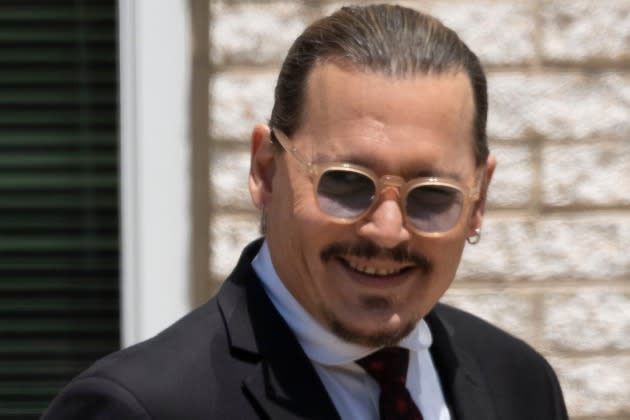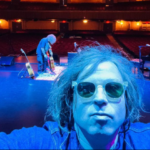
After 13 hours of deliberating, jurors deciding the fate of Johnny Depp’s defamation duel with Amber Heard announced that they had reached a verdict. Only there was one problem: They forgot to specify damages.
Judge Penney Azcarate told jurors to retire back to the deliberation room with no deadline on when to return. It could have taken an hour or another three days. After all, juries are given wide latitude on calculating damages, and there’s no formula to follow. They are not given a lot of guidance.
More from The Hollywood Reporter
But only 15 minutes later, the jurors returned with a number. They awarded Depp $15 million in a verdict in favor of the actor on nearly all counts. Of the award, $5 million was in punitive damages aimed to punish Heard for especially reprehensible conduct and to deter similar conduct in the future (later reduced to $350,000 in accordance with the state’s statutory cap).
The decision stood in stark contrast with the result in Depp’s suit in the United Kingdom, where he lost a similar defamation case. One major difference that led to the reversal in Depp’s fortunes, said legal experts, is that his case was decided by a jury, unlike his trial overseas, which was decided by a judge.
“You have seven individuals in a jury who bring with them their own baggage,” says Amber Melville-Brown, who followed both trials as the head of the U.S. media and reputation team at international law firm Withers. “A judge may be more used to dissociating themselves from the evidence, where maybe a group of laypeople are less able to do so.”
Depp on Wednesday was handed a lopsided victory in his suit against Heard, prevailing on all three claims that he was defamed in his ex-wife’s op-ed in The Washington Post. Heard won on only one of her three counterclaims alleging that Depp smeared her by calling her accusations a hoax. She was awarded $2 million, with nothing in punitive damages, in the split verdict. (The Post op-ed now includes an editor’s note about the verdict.)
The headline, which was found to be defamatory, read, “I spoke up against sexual violence — and faced our culture’s wrath. That has to change.” The other defamatory statements were, “Then two years ago, I became a public figure representing domestic abuse, and I felt the full force of our culture’s wrath for women who speak out,” and, “I had the rare vantage point of seeing, in real time, how institutions protect men accused of abuse.” Although the statements did not mention him by name, Depp claimed that they implied that he abused Heard.
In the U.K., Depp lost a similar defamation suit against The Sun after it called him a “wife beater.” As part of its defense, the tabloid newspaper was forced to substantiate its claims under the country’s stringent libel laws, unlike in the U.S. trial, where the burden of proof was on Depp.
The court in that case found that The Sun proved that 12 of the 14 incidents of abuse were substantially true. The suit was not decided by a jury.
The U.K. ruling was among the reasons Depp’s win in the Virginia trial was so unlikely. Defamation suits by celebrities and other people in the public interest in the U.S. are exceedingly difficult to win. Part of the reason is because they must prove that the speakers of the defamatory statements made them with actual malice, or the knowledge that they knew the claims were lies, or acted with reckless disregard for the truth.
“In the U.K., the plaintiff has a much greater chance to win and in the U.S., the defense,” says George Freeman, director of the Media Law Resource Center. “Here, the opposite happened.”
The verdict suggests that jurors rejected Heard’s central theory of the case: that if there was even one instance of abuse, she should win because her statements would then be true. The jury was swayed by Depp’s arguments that Heard faked her injuries, which she documented with photographs and audio recordings, to boost her career by claiming her #MeToo moment. They were convinced that Heard lied about every instance of abuse.
“In contrast to U.K. result, seven people got together in a room and found not only is there not 12 instances of domestic abuse, there’s zero,” says Lee Berlik, a Virginia-based defamation lawyer. “Not only that, they found those vague statements amount to a hoax. It’s hard to reconcile that with a judge in the U.K. finding that [Heard’s] telling the truth.”
Notably, jurors were not sequestered in the Virginia trial, meaning that they may have been exposed to some information or third-party context about the case. The trial proved to be a gold mine for online influencers, who took to Twitch and YouTube to react in real time and posted memes on Instagram and Facebook.
Heard’s attorney, Elaine Bredehoft, argued on NBC’s Today on Thursday that social media played a factor in the verdict.
“[The jury] went home every night,” Bredehoft said. “They have families. The families are on social media. We had a 10-day break in the middle because of the judicial conference. There’s no way they couldn’t have been influenced by it. And it was horrible. It really, really was lopsided. It’s like the Roman Colosseum.”
The #JusticeForJohnny campaign was far more popular than posts supporting Heard. Depp’s post-trial message to fans on Instagram got 17 million likes as of Thursday, while Heard’s message got roughly 300,000. As the trial unfolded, Heard was relentlessly mocked by influencers who claimed she faked her testimony recounting multiple instances of abuse at the hands of Depp. She was branded a liar for failing to follow through on her pledge to donate the entirety of her $7 million divorce settlement to the American Civil Liberties Union and Children’s Hospital Los Angeles despite explaining that she had to stop making the donations, which were to be paid over several years, to pay for litigation costs.
“I’m told that the jurors couldn’t have avoided all the Johnny Depp fans in and around the courthouse and didn’t avoid all the social media chatter in favor of him,” Freeman said. “It’s not unrealistic to think that had an effect on them. If it did, that’s problematic.”
Regardless, choosing nine truly unbiased jurors was a lot to ask for. Heard’s abuse claims against Depp, a onetime anchor in franchise movies, have been lingering since 2016, when she obtained a domestic violence restraining order. One man was allowed to be on the jury despite revealing a text from his wife calling Heard “psychotic.” The message goes on to say, “If a man says a woman beat him, they never believe him.”
There’s also the question of whether the judge should have allowed the case to proceed to trial in the first place. Before a jury was convened, Heard moved to dismiss the suit under the theory that the statements were not specific enough that they could be inferred to be about Depp.
Berlik took issue with not dismissing the statement, “I had the rare vantage point of seeing, in real time, how institutions protect men accused of abuse,” in particular. Although there can be defamation by implication, he questioned how the claim concerns Depp at all.
“How do seven minds all agree that this was a false statement?” Berlik asked. “It seems more likely that jury went in and all kind of said, ‘We believe Johnny and don’t believe Amber.’”
While he agreed with the judge’s decision to allow the jury to decide whether the statement was defamatory, former California appellate Judge Halim Dhanidina said, “There comes a point at which a statement is so vague it can’t reasonably be determined to be a statement of fact.”
Dhanidina added, “There’s a point at which the court has to draw a line.”
Another prime target on appeal will be whether the trial should have taken place in Virginia and not California, where both sides reside. Depp at least partially chose to sue Heard in Virginia because the state at the time did not have an anti-SLAPP law, which allows for the early dismissal of suits intended to chill free speech. Azcarate sided with the Pirates actor that it’s appropriate for the case to be tried in Virginia because the op-ed was printed at the Post‘s plant in Springfield.
If the case was moved to California, Heard could have filed a moved to dismiss the suit early on under California’s generous anti-SLAPP statute. By doing so, Heard would have shifted the burden onto Depp to prove that he was likely to prevail in the case. Legal experts agreed a change in venue likely would not have changed the outcome of the trial, but it would have provided another arrow to Heard’s quiver. Combined with a new judge making different rulings, like allowing the trial to be publicly broadcast, it may have gotten her over the hump.
Best of The Hollywood Reporter




